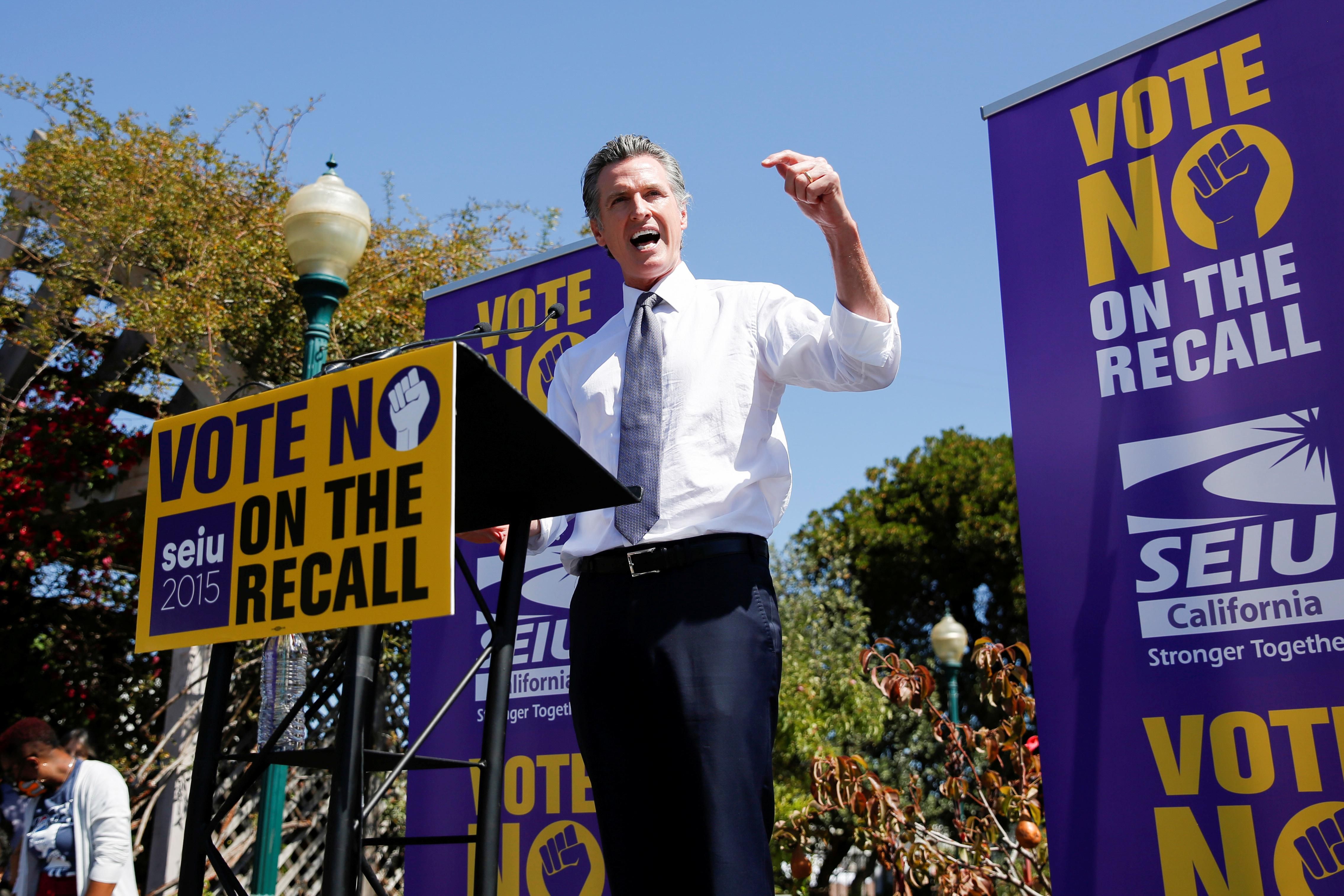News
September 13, 2021
The world's fifth largest economy votes: Voters in the US state of California will vote Tuesday on whether to fire the state's Democratic Governor, Gavin Newsom, and replace him with someone else. Some 46 candidates have put their names on the ballot to take the governor's mansion from Newsom, the former San Francisco mayor who has been broadly criticized for his pandemic policies — in particular his decision to keep many public schools closed last year, as well as dining out at an exclusive restaurant while telling Californians to stay home. But while the recall effort initially had steam, low projected turnout and an uninspiring group of replacement options — including right wing shock-jock Larry Elder and Caitlyn Jenner of Kardashian fame — mean that Newsom will likely survive. The vote has national implications: there is increasing pressure on the state's 88-year old Senator Diane Feinstein to retire before her term is up in 2024, and it would be up to the governor to appoint her replacement. With the Senate currently divided 50-50, a Republican governor could flip control back to the GOP. But that's a long-shot: Republicans only make up 24 percent of the electorate, compared to 35 percent in 2003, the last time the state recalled its Democratic governor. Who took over after that? The Terminator.
Bad signs for Argentina's president: The coalition of President Alberto Fernandez got walloped over the weekend in mandatory primaries that are considered a dry-run for November's mid-term elections. His leftwing Peronist ticket pulled just 31 percent of the vote, almost ten points behind the center-right opposition Juntos por el Cambio (Together for Change) list, and won in just 8 of Argentina's 24 provinces. The result isn't hugely surprising, considering how bad things are in Argentina at the moment. Inflation is flirting with 50 percent, and Argentina has one of the highest death rates per 100,000 in the world. If these results repeat in November, Fernandez would lose his Senate majority, vastly complicating his ability to govern in the second half of his term. At the same time, his powerful Vice President Cristina Fernandez de Kirchner, who was president from 2007 to 2015, is breathing down his neck, pushing for more economic interventions in order to boost support in the election. With Argentina already reeling from a debt crisis, that could prove disastrous. Argentina has lurched from crisis to crisis in recent years, with big political swings to match. Indeed, the next two months could be particularly perilous.
A big deal in Malaysia: The country's ruling coalition has signed an agreement with the opposition, in a move that boost's the teetering prime minister, and could stabilize politics for a bit after a tumultuous few years. In August, current PM Ismail Sabri Yaakob became the third prime minister in as many years, with a majority so slim that the country's monarch called for a vote of confidence to prove that he was really in charge. The new agreement, meant to shore up political stability while the country grapples with the pandemic, grants the opposition a say on all legislation and matters of economic recovery, and lowers the voting age from 21 to 18. No date has been set for the confidence vote, but that will be the next big milestone for Ismail Sabri, who will now try and pass the 2022 national budget to boost confidence. A strong showing will put him in the clear for a while, and give Malaysia a chance to dig out of the pandemic without further political upheavals.
From Your Site Articles
More For You
- YouTube
At the 62nd Munich Security Conference in Munich, GZERO’s Tony Maciulis spoke with Benedikt Franke, Vice Chairman and CEO of the Munich Security Conference, to discuss whether the post-1945 global order is under strain or already unraveling.
Most Popular
- YouTube
Zelensky agrees: elections matter #PUPPETREGIME
As more small businesses move sales, payments, and customer relationships online, they unlock new opportunities, but they also become easier targets for cyber-criminals and other threat actors.
TOKYO, JAPAN - FEBRUARY 8: Japan's Prime Minister Sanae Takaichi, leader of the ruling Liberal Democratic Party (LDP), places a red paper rose on the name of an elected candidate at the LDP headquarters on general election day on February 08, 2026 in Tokyo, Japan. Voters across the country headed to polls today as Japan's Lower House election was held.
Photo by Kim Kyung-Hoon - Pool/Getty Images
When Japanese Prime Minister Sanae Takaichi called snap elections last month, it was a big gamble. Holding a winter election just four months into her tenure with no real policy record to run on?
© 2025 GZERO Media. All Rights Reserved | A Eurasia Group media company.
